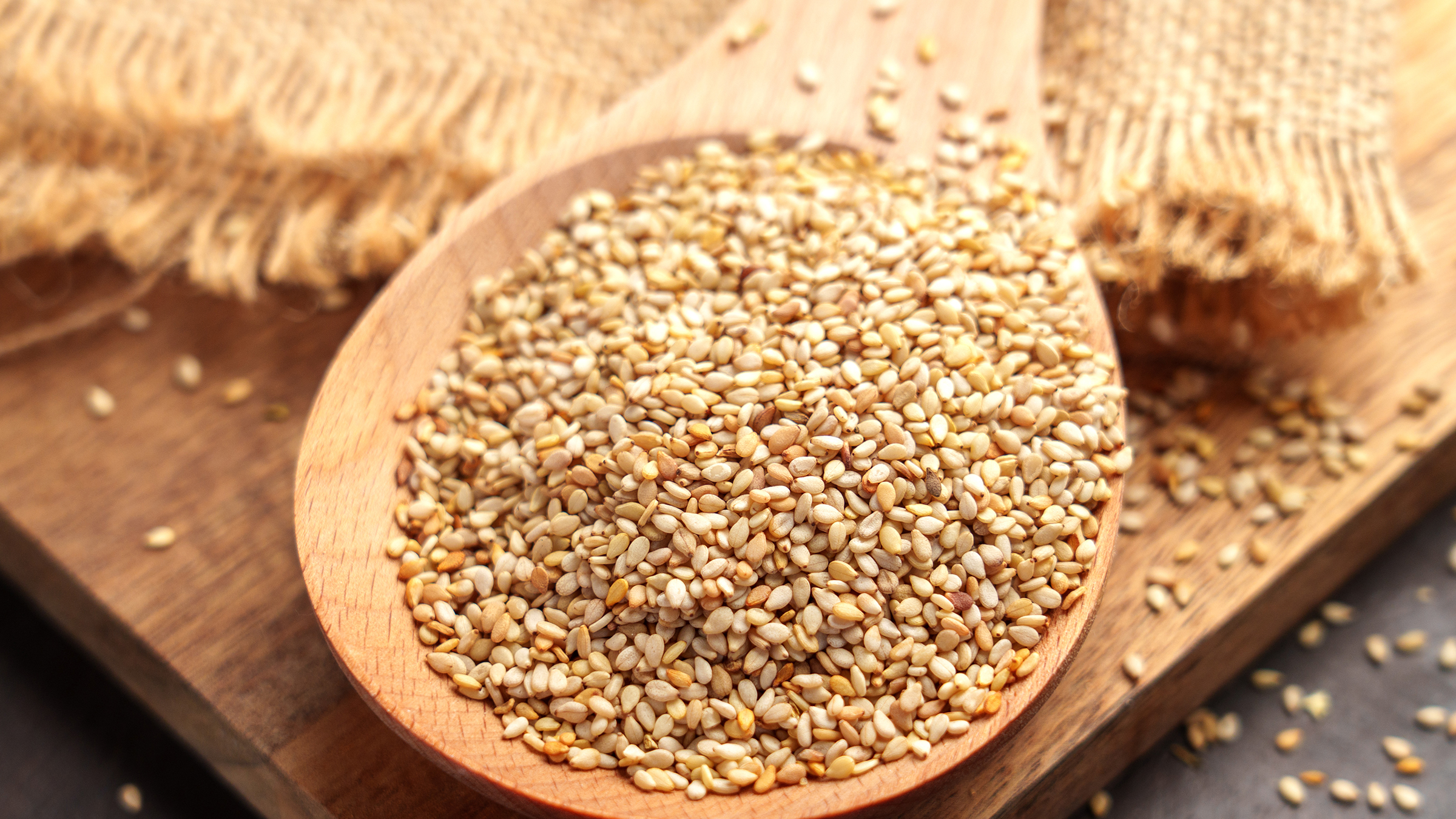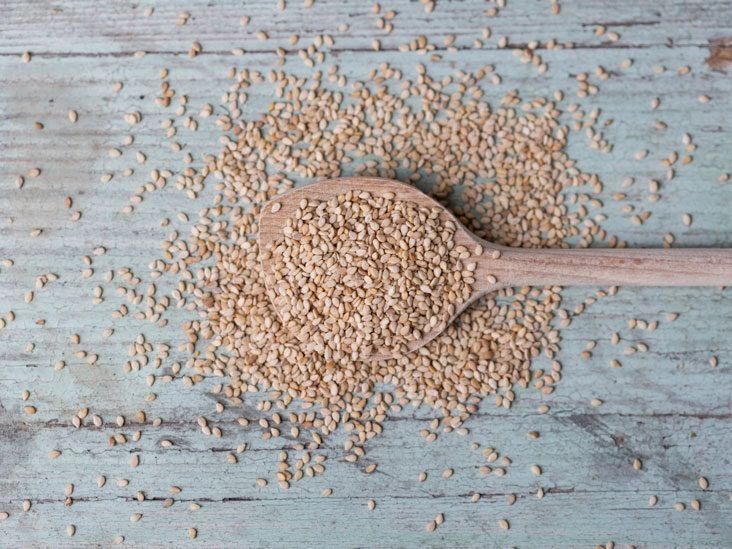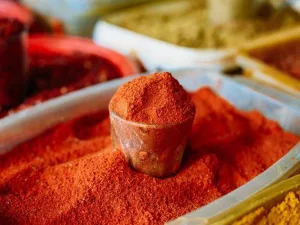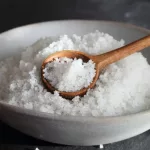Sesame seeds offer a variety of possible health advantages. For example, they may help protect against cardiovascular disease, diabetes, and arthritis. To experience benefits, however, you might need to consume a meaningful amount — roughly a small handful each day.
These tiny, oil-dense seeds develop in pods on the Sesamum indicum plant and have a long history in traditional medicine.
Unhulled sesame seeds keep their outer, edible husk intact, whereas hulled seeds have had that husk removed.
The hull gives unhulled seeds a golden-brown tint. Hulled seeds are off-white but darken to brown when toasted.
Below are 15 health-related benefits associated with sesame seeds.
Good source of fiber
Three tablespoons (27 grams) of unhulled sesame seeds deliver of fiber, which equals about 11% of the .
Dietary fiber is well known for supporting digestive health. Moreover, increasing evidence indicates fiber may contribute to lowering the risk of heart disease, some cancers, obesity, and type 2 diabetes.

May lower cholesterol and triglycerides
suggest that frequent consumption of sesame seeds could assist in reducing elevated cholesterol and triglycerides, both of which are risk factors for heart disease.
Sesame seeds are composed of roughly 14% saturated fat, 44% polyunsaturated fat, and 38% monounsaturated fat.
indicates that replacing saturated fats with polyunsaturated and monounsaturated fats may help decrease cholesterol and reduce the risk of heart disease.
Additionally, sesame seeds contain plant compounds called lignans and phytosterols, which may contribute to lowering cholesterol.
In a , 38 people with elevated blood lipids consumed 5 tablespoons (40 grams) of hulled sesame seeds daily for two months and experienced a 10% drop in “bad” LDL cholesterol and an 8% decline in triglycerides compared with the placebo group.
Nutritious source of plant protein
Sesame seeds provide of protein per 3-tablespoon (27-gram) portion.
To improve protein availability, choose hulled, roasted sesame seeds. Hulling and roasting reduce oxalates and phytates—compounds that can hinder protein digestion and absorption.
Protein is vital for health, contributing to everything from muscle and tissue building to hormone production.
Sesame seeds are relatively low in lysine, an essential amino acid more plentiful in animal foods. Vegetarians and vegans can offset this by eating lysine-rich plant proteins, especially legumes like kidney beans and chickpeas.
Conversely, sesame seeds are rich in methionine and cysteine, amino acids that legumes commonly lack.
May help lower blood pressure
High blood pressure is a key risk factor for heart disease and stroke.
Sesame seeds contain significant magnesium, which may contribute to lowering blood pressure.
Furthermore, lignans, vitamin E, and other antioxidants in sesame seeds may help prevent arterial plaque buildup, which can support healthy blood pressure.
In one 2011 study, individuals with hypertension took 2.5 grams of powdered black sesame seeds — a less common variety — in capsule form daily.
A 2020 review confirmed that sesamin, a compound found in sesame seeds and their oil, reduced systolic ventricular blood pressure in both human and animal studies.
After one month, participants showed a 6% reduction in systolic blood pressure—the top number in a blood pressure reading—compared with placebo.
May support healthy bones
Both unhulled and hulled sesame seeds are rich in several nutrients that support bone health, although most of the calcium is concentrated in the hull.
Three tablespoons of sesame seeds provide:
Unhulled
Hulled
Calcium20% of the DV1% of the DV Magnesium23% of the DV20% of the DVManganese29% of the DV15% of the DVZinc19% of the DV15% of the DV
However, sesame seeds contain natural antinutrients like oxalates and phytates that can inhibit absorption of these minerals.
Soaking, roasting, or sprouting the seeds can help reduce the effect of these compounds.
One study reported that sprouting lowered phytate and oxalate levels by about 50% in both hulled and unhulled sesame seeds.
May reduce inflammation
Sesame seeds may have anti-inflammatory properties.
Chronic, low-grade inflammation is implicated in many long-term conditions, including obesity, some cancers, and heart and kidney disease.
A 2014 study observed that people with kidney disease who consumed 18 grams of flax seeds plus 6 grams each of sesame and pumpkin seeds daily for three months saw inflammatory markers decline by 51–79%.
A 2020 review of clinical trials found sesame intake reduced levels of interleukin-6 (IL-6), an inflammatory protein, though it did not change other markers such as C-reactive protein (CRP) or tumor necrosis factor-α (TNF-α).
A 2023 literature review noted that sesamol, a lignan in sesame, targets several inflammatory proteins, including IL-6 and TNF-α. Further studies are required.
Good source of B vitamins
Sesame seeds provide several B vitamins, distributed across both the hull and the seed.
Removing the hull can either concentrate or eliminate certain B vitamins.
Three tablespoons of unhulled and hulled sesame seeds supply:
Unhulled
Hulled
Thiamine (B1)18% of the DV14% of the DVNiacin (B3)8% of the DV9% of the DVVitamin B613% of the DV6% of the DV
B vitamins are crucial for many bodily processes, including cellular function and metabolic pathways.
May aid blood cell formation
Your body requires several nutrients to produce red blood cells, many of which are found in sesame seeds.
Three tablespoons of sesame seeds provide:
Unhulled
Hulled
FunctionIron22% of the DV9% of the DVAn essential component of hemoglobin, which carries oxygen in your red blood cellsCopper122% of the DV37% of the DVHelps make hemoglobinVitamin B613% of the DV6% of the DVHelps make hemoglobin
Soaking, roasting, or sprouting sesame seeds may improve the absorption of these minerals.
May aid blood sugar management
Sesame seeds are low in carbs and relatively high in protein and healthy fats, which can support blood sugar regulation.
They also contain pinoresinol, a compound that may help manage blood sugar by inhibiting the digestive enzyme maltase.
Maltase breaks down the sugar maltose, a sweetener in some food products and a product of starch digestion from foods like bread and pasta.
If pinoresinol reduces maltose digestion, it could lead to lower blood sugar; however, more human research is necessary.
Rich in antioxidants
Animal and human studies indicate that eating sesame seeds may raise the overall antioxidant capacity in the blood.
The lignans in sesame act as antioxidants, helping to counter oxidative stress — a process that can damage cells and raise the risk of chronic disease.
Sesame seeds also contain gamma-tocopherol, a form of vitamin E that may offer particular protection against heart disease.
May support your immune system
Sesame seeds supply several nutrients important for immune function, including zinc, selenium, copper, iron, vitamin B6, and vitamin E.
Zinc, for instance, is necessary for the development and activation of certain white blood cells that identify and attack pathogens.
Even mild to moderate zinc deficiency can impair immune responses.
A 3-tablespoon (27-gram) serving of whole sesame seeds delivers about 19% of the DV for zinc.
May soothe arthritic knee pain
Osteoarthritis is the leading cause of joint pain and frequently affects the knees.
Factors such as inflammation and oxidative injury to cartilage contribute to arthritis.
Research shows that sesamin, a compound in sesame seeds, has antioxidant and anti-inflammatory effects that may help protect cartilage.
In a , participants with knee osteoarthritis who consumed 5 tablespoons (40 grams) of sesame seed powder daily alongside drug therapy reported a 63% reduction in knee pain versus a 22% reduction in the group receiving only drug therapy.
The sesame seed group also saw better performance on a basic mobility test and greater decreases in certain inflammatory markers compared with the control group.
May support thyroid health
Sesame seeds are a notable source of selenium, providing 188% of the DV in a 3-tablespoon serving.
The thyroid contains the highest selenium concentration of any organ, and this mineral plays a crucial role in thyroid hormone production.
Sesame seeds also supply iron, copper, zinc, and vitamin B6, nutrients that support thyroid hormone synthesis and overall thyroid function.
May aid hormone balance during menopause
Sesame seeds contain phytoestrogens — plant-based compounds that resemble the hormone estrogen.
As a result, sesame seeds may be helpful for women experiencing declining estrogen levels during menopause. For instance, phytoestrogens may reduce hot flashes and other symptoms associated with low estrogen.
These compounds may also influence the risk of certain conditions during menopause, such as breast cancer, though more research is needed.
Easy to add to your diet
Sesame seeds add a nutty taste and subtle crunch to many recipes.
To boost flavor and make nutrients more available, roast sesame seeds at 350°F (180°C) for a few minutes, stirring intermittently, until they become light golden brown.
Try using sesame seeds in:
- stir-fries
- steamed broccoli
- hot or cold cereal
- granola and granola bars
- bread and muffins
- crackers
- yogurt
- smoothies
- salads
- salad dressings
- hummus
- garnishes
You can swap sesame seed butter or tahini for peanut butter or use it instead of hummus.
Ground sesame seeds (sesame flour or sesame meal) work well in baking, smoothies, fish batter, and other recipes.
Be aware that sesame allergies are becoming more common, so exercise caution when cooking for groups.
The bottom line
Sesame seeds are a valuable source of healthy fats, protein, B vitamins, minerals, fiber, antioxidants, and other beneficial plant compounds.
Eating substantial amounts of these seeds regularly — not merely sprinkling a few on a bun — may assist with blood sugar control, alleviate arthritis pain, and lower cholesterol.
Consume sesame seeds soaked, roasted, or sprouted to maximize nutrient availability.

























Leave a Reply
You must be logged in to post a comment.